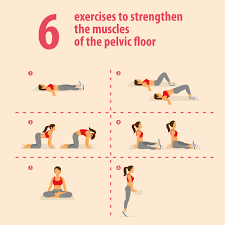A nurse in a prenatal clinic is caring for a client who is at 7 weeks of gestation. The client reports urinary frequency and asks if this will continue until delivery. Which of the following responses should the nurse make?
"It occurs during the first trimester and near the end of the pregnancy."
"It's a minor inconvenience, which you should ignore."
"There is no way to predict how long it will last in each individual client."
"In most cases, it only lasts until the 12th week, but it will continue if you have poor bladder tone."
The Correct Answer is A
Choice A: Urinary frequency is a common symptom during pregnancy, especially in the first trimester and near the end of the pregnancy. During the first trimester, it is mainly due to
hormonal changes and increased blood flow to the pelvic area. In the later stages, it is caused by the growing uterus putting pressure on the bladder.
Choice B: Dismissing the client's concern as a minor inconvenience is not appropriate and may disregard the client's experience.
Choice C: While it is true that each individual client's experience may vary, it is important to provide the client with information regarding common patterns.
Choice D: Providing accurate information about the duration of urinary frequency is important. While it may last until the 12th week for many women, it does not continue throughout the entire pregnancy for most individuals, regardless of bladder tone.
Nursing Test Bank
Naxlex Comprehensive Predictor Exams
Related Questions
Correct Answer is C
Explanation
A. "Increase your intake of ironrich foods and take a prenatal vitamin."
Important, but not directly related to reducing the risk of neural tube defects. Ironrich foods and prenatal vitamins are essential for overall maternal and fetal health, but they do not specifically target neural tube defect prevention.
B. "Avoid any alcohol consumption."
Important advice during pregnancy to prevent fetal alcohol spectrum disorders, but not directly related to reducing the risk of neural tube defects.
C. "Take a folic acid supplement for at least 3 months before you get pregnant."
Correct: Adequate folic acid intake before conception and during early pregnancy can significantly reduce the risk of neural tube defects in newborns.
D. "Avoid all foods containing aspartame."Aspartame is an artificial sweetener that has been studied for safety in pregnancy, and there is currently no strong evidence linking it to neural tube defects. However, it's still a good idea
to limit the intake of artificial sweeteners during pregnancy and focus on a balanced diet.
Correct Answer is A
Explanation
Choice A: Kegel exercises are specifically designed to strengthen the pelvic floor muscles, which play a crucial role during childbirth. Strengthening these muscles can aid in better control during labor and delivery, facilitating stretching and reducing the risk of injury.
Choice B: Kegel exercises do not have a direct impact on preventing constipation during pregnancy. However, they may help improve bowel control and prevent fecal incontinence.
Choice C: While Kegel exercises can improve posture and core strength, their primary benefit lies in strengthening the pelvic muscles, not directly reducing backaches throughout pregnancy.
Choice D: Kegel exercises are not intended to prevent stretch marks on the abdomen. Stretch marks are caused by the stretching of the skin during pregnancy and are not related to pelvic muscle exercises.

Whether you are a student looking to ace your exams or a practicing nurse seeking to enhance your expertise , our nursing education contents will empower you with the confidence and competence to make a difference in the lives of patients and become a respected leader in the healthcare field.
Visit Naxlex, invest in your future and unlock endless possibilities with our unparalleled nursing education contents today
Report Wrong Answer on the Current Question
Do you disagree with the answer? If yes, what is your expected answer? Explain.
Kindly be descriptive with the issue you are facing.
